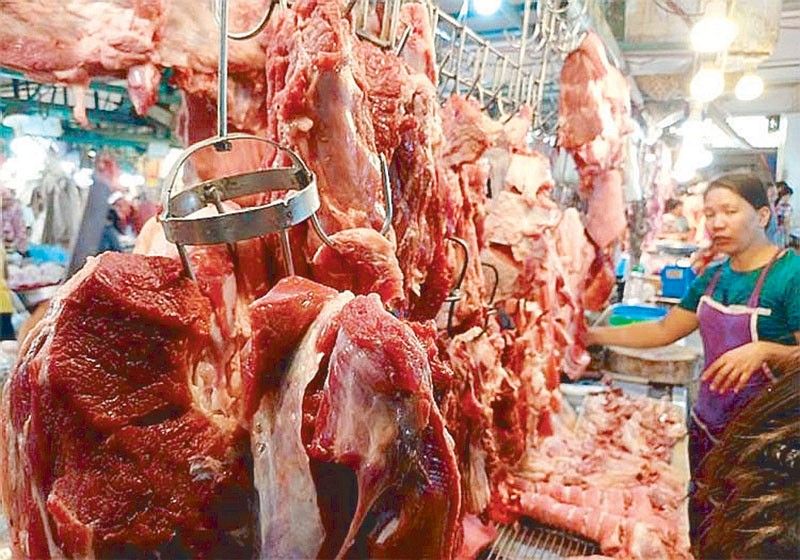‘Pork prices to go up as DA limits imports’
February 27, 2024 | 12:00am Pork prices are expected to go up due to import limits. STAR / File MANILA, Philippines — Limiting imports under lower tariff rate could drive pork prices higher as micro, small and medium enterprises (MSMEs) would lose access to “cheaper” imported stocks, meat importers warned yesterday. In a letter to […]


February 27, 2024 | 12:00am
Pork prices are expected to go up due to import limits.
STAR / File
MANILA, Philippines — Limiting imports under lower tariff rate could drive pork prices higher as micro, small and medium enterprises (MSMEs) would lose access to “cheaper” imported stocks, meat importers warned yesterday.
In a letter to Agriculture Secretary Francisco Tiu Laurel Jr., the Meat Importers and Traders Association (MITA) expressed concern surrounding the quotas for the minimum access volume (MAV) this year.
The group lamented that the quota allocations have not been distributed, almost a month into the current MAV year.
The group also questioned the decision of the Department of Agriculture (DA) to limit the share of meat traders to 40 percent of the pork MAV, while 60 percent went to processors.
Furthermore, the group is lukewarm to the DA’s move to issue first the 25 percent of this year’s pork MAV.
The decision, MITA claimed, “effectively” reduced the quota of traders by 90 percent, which it argued is a violation of the general principles of the MAV mechanism, particularly in terms of transparency.
MITA said the bulk or over 120 of the present 145 licensees under pork MAV hold less than 500 metric tons of the annual allocations with an average quota of 150 MT each.
Based on the group’s computations, MITA president Emeritus Jesus Cham told The STAR that the small-scale pork MAV importers would be left with just an import allocation of 15 MT.
This allocation, Cham explained, is disadvantageous to importers since it is less than the “economic lot size” of 25 MT for a 40 foot container, effectively discouraging them from importing their quotas.
“You (will) expect [pork] prices to go up since the (pork) retailers will be forced to go to big players and importers to get their imported stocks,” he said.
The STAR learned that the DA has begun issuing provisional import certificates for imports under the minimum access volume (MAVIC).
Imports under the MAV are levied by the state with lower tariffs as part of the country’s trade commitments.
The MAVIC is required for importers to secure the lower tariff privilege.
Under Executive Order 50, pork imports within the MAV are levied with 15 percent tariff, while shipments outside it are slapped with 25 percent tariff until end of the year.
InterCommerce, the service provided of the DA for import certificates, sent a notice to MAV licensees last Feb. 23, informing them that the MAV Secretariat would begin distributing provisional MAVIC for the following commodities: poultry, corn, chipping potatoes, coffee beans, coffee extracts and pork.
However, the InterCommerce told the MAV licensees that only 25 percent of the tentative annual allocation for the pork MAV would be distributed.
InterCommerce directed the importers to reach out to the MAV Secretariat regarding the available pork MAV allocations and application procedures.
The STAR learned that the tentative pork quota in the current MAV year is at around 52,500 MT.














